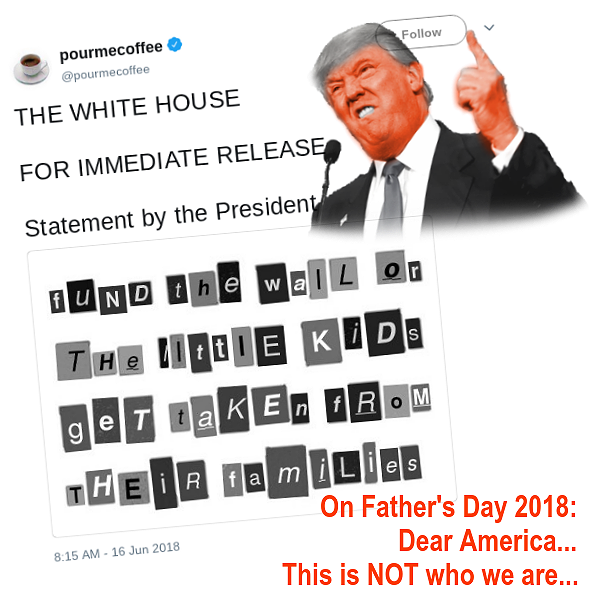 In a five-four opinion, the Supremes -- using the Gorsuch seat that should have been Merrick Garland's -- just turned a blind eye to Trump's odious racial and religious animus. As a technical matter, it goes back to the trial court, in Hawaii -- as a practical matter. . . racism, and religious bigotry. . . wins. Kennedy writes a concurrence, and all but says what 45 did was unconstitutional -- but then, in a shocking display of ineptitude (old age?) -- says the Supreme Court cannot address it. Disgusting. He was the swing vote.
In a five-four opinion, the Supremes -- using the Gorsuch seat that should have been Merrick Garland's -- just turned a blind eye to Trump's odious racial and religious animus. As a technical matter, it goes back to the trial court, in Hawaii -- as a practical matter. . . racism, and religious bigotry. . . wins. Kennedy writes a concurrence, and all but says what 45 did was unconstitutional -- but then, in a shocking display of ineptitude (old age?) -- says the Supreme Court cannot address it. Disgusting. He was the swing vote.
I agree with The Notorious (RBG), and Justice Sotomayor (in dissent) who write that the court today has:
. . . .[left] undisturbed a policy first advertised openly and unequivocally as a ‘total and complete shutdown of Muslims entering the United States’ because the policy now masquerades behind a façade of national-security concerns. . . . by ignoring the facts, misconstruing our legal precedent, and turning a blind eye to the pain and suffering the Proclamation inflicts upon countless families and individuals, many of whom are United States citizens. . . .
Our Constitution demands, and our country deserves, a Judiciary willing to hold the coordinate branches to account when they defy our most sacred legal commitments. Because the Court’s decision today has failed in that respect, with profound regret, I dissent. . . .
[For its part, the majority opinion offers us this -- which -- I must say, sounds a lot like what is underway now on "Zero Tolerance"]:
. . .Finally, the dissent invokes Korematsu v. United States, 323 U. S. 214 (1944). Whatever rhetorical advantage the dissent may see in doing so, Korematsu has nothing to do with this case. The forcible relocation of U. S. citizens to concentration camps, solely and explicitly on the basis of race, is objectively unlawful and outside the scope of Presidential authority. But it is wholly inapt to liken that morally repugnant order to a facially neutral policy denying certain foreign nationals the privilege of admission. See post, at 26–28. The entry suspension is an act that is well within executive authority and could have been taken by any other President — the only question is evaluating the actions of this particular President in promulgating an otherwise valid Proclamation. The dissent’s reference to Korematsu, however, affords this Court the opportunity to make express what is already obvious: Korematsu was gravely wrong the day it was decided, has been overruled in the court of history, and — to be clear — “has no place in law under the Constitution.” 323 U. S., at 248 (Jackson, J., dissenting). . . .
Onward. Just the same.
Given that Kennedy added this thought to his one and a half page concurrence, I think he signed the wrong opinion. He is effectively, in fact, siding with the dissenters -- but apparently lacks the courage to say so:
. . .The First Amendment prohibits the establishment of religion and promises the free exercise of religion. From these safeguards, and from the guarantee of freedom of speech, it follows there is freedom of belief and expression. It is an urgent necessity that officials adhere to these constitutional guarantees and mandates in all their actions, even in the sphere of foreign affairs. An anxious world must know that our Government remains committed always to the liberties the Constitution seeks to preserve and protect, so that freedom extends outward, and lasts. . . .
Very strange times. If Kennedy sees it as unconstitutional, but thinks the Supremes are powerless to stop it -- why is he even on the court? I need to take a break. Discouraging.
नमस्ते
















1 comment:
Once, at 1:31 pm… dark matter, this?
Post a Comment